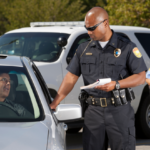Owning an RV (Recreational Vehicle) opens up a world of adventure and travel opportunities. Whether you’re exploring national parks, taking off on cross-country road trips, or simply enjoying weekend getaways, your RV is your home on wheels.
However, like any vehicle or property, recreational vehicles are susceptible to damage, and water damage is a common concern for RV owners.
Keep reading to understand your RV insurance coverage, including how to determine if you have it, how to add coverage, how to prevent water damage, and specific scenarios like flood risk.
Understanding RV insurance coverage
Before we address water damage specifically, let’s first understand the basics of RV insurance coverage. RV insurance typically falls into two main categories: liability coverage and physical damage coverage.
- Liability Coverage: This type of coverage helps protect you financially if you’re found responsible for causing injury or property damage to others while using your RV. It typically includes bodily injury liability and property damage liability.
- Physical Damage Coverage: Physical damage coverage helps repair or replace your RV if it’s damaged or destroyed in an accident, whether it’s a collision with another vehicle or an object, or if it’s damaged by something other than a collision, like fire, theft, vandalism, or weather-related incidents.
- Personal Belongings Coverage: Most think of an RV as a mobile home, not just a way to get from place to place. That’s why RV insurance often extends beyond the vehicle itself and provides coverage for personal belongings like electronics, furniture, clothing, and other valuables you might take with you.
Does RV insurance cover water damage?
The answer to whether RV insurance covers water damage depends on the type of coverage you have and the circumstances surrounding the damage. Here’s what you need to know:
- Comprehensive Coverage: If you have comprehensive coverage as part of your RV insurance policy, it typically covers damage caused by non-collision events, such as hailstorms, falling objects, theft, vandalism, and, yes, water damage. Comprehensive coverage is optional but is often recommended for protecting your RV against a wide range of risks.
- Exclusions and Limitations: While comprehensive coverage may cover water damage, it’s important to review your policy for any exclusions or limitations related to water damage. Common exclusions might include damage from gradual leaks or seepage, maintenance-related issues, or damage resulting from owner negligence. Some policies may also have limitations on coverage for water damage caused by floods or natural disasters. More on that later.
How do I know if my RV insurance policy includes comprehensive coverage?
Check your insurance policy documents or contact your insurance provider directly. Look for a section labeled “Comprehensive Coverage” or ask your agent to confirm if this coverage is included in your policy. For additional information, check out our blog, “5 essential things to know about RV insurance,” from June 2024.
What water damage coverage can I add to my policy?
Depending on your insurance provider and policy, you may have the option to add endorsements or additional coverage specifically for water damage. This could include coverage for damage from burst pipes, plumbing leaks, roof leaks, or other water-related incidents. Discuss these options with your insurance agent to see if you can customize your policy and how doing so might affect your premiums.
Tips for preventing water damage to your RV
While having the right insurance coverage is paramount, preventing water damage in the first place is equally important. Here are some tips to help protect your RV from water damage:
- Inspect and Maintain Seals and Caulking: Regularly inspect the seals and caulking around windows, doors, vents, and roof seams to ensure they’re watertight. Replace any damaged or worn seals promptly. If you’re still under warranty, it’s best to have this done professionally.
- Check for Leaks: Routinely check for signs of leaks inside your RV, such as water stains, mold, or musty odors. Address any leaks immediately to prevent damage creep.
- Keep Roof and Slide-Outs Clean: Keep the roof of your RV clean and free of debris to prevent water from pooling and causing damage. Similarly, clean and lubricate slide-out seals regularly. Regularly cleaning and lubricating the slide-out seals won’t just help maintain their effectiveness; it could also reveal any areas of the chassis where water might be pooling, even if it’s not immediately apparent.
- Use RV Covers: Consider using RV covers or tarps to protect your RV from rain, snow, and other environmental elements when it’s not in use, especially if you store it for an extended period.
- Follow Insurance Guidelines: Regularly inspect and follow any maintenance guidelines specified in your policy. Reasonable upkeep can prevent water damage and ensure that claims are honored if damage is reported.
Are RV insurance discounts offered if I take preventive measures against water damage?
It’s worth noting that while not all insurers provide discounts, some do offer incentives for proactive measures. These can include installing water leak detectors, upgrading sealing materials, or completing a comprehensive maintenance course. To see if you qualify, reach out to your insurance provider about available discounts.
What about water damage from flooding?
Most RV insurance policies offer comprehensive coverage, which typically includes protection against natural disasters like fires, hail, and other types of non-collision damage. However, with extreme weather conditions becoming more common, some insurance policies are pulling back from flood insurance coverage.
When purchasing RV insurance, it’s important to confirm with your insurance provider that flood coverage is included in the comprehensive policy, as coverage options can vary.
Flood Risk at Home: If you live in a high-risk flood area — and that’s where you store your RV when not in use — you might want to discuss specific flood insurance options with your provider to ensure adequate protection for your RV.
Flood Risk While Traveling: If you’re vacationing near a river, stream, or seashore, you’ll want some peace of mind that the campground or facility where you’re parking your RV is not in a high-risk flooding area. If it is, there are steps you can take to protect your RV against flood damage.
- Verify Your Insurance Coverage: Before you travel, check with your insurance provider to see whether your comprehensive coverage includes protection against flood damage. If so, confirm that this coverage applies regardless of the location of your RV.
- Research Your Destination: Do some detective work on the area where you’ll be staying. Look for flood maps or information about flood zones, which can often be found on local government websites or resources like FEMA’s Flood Map Service Center.
- Ask the Campground: When booking a campground or parking spot, ask the management about the flood risk in the area. They should be able to provide information on whether the location is prone to flooding.
- Monitor Weather Conditions: Keep an eye on weather forecasts and alerts for the area where you’re staying. This can help you stay informed about potential flood risks and take necessary precautions. And always map out the best evacuation routes.
How do I file a claim if my RV has water damage?
If your RV gets water damage while you’re on the road — or even while parked outside your home — it’s super important to act fast by taking temporary steps to prevent the damage from getting worse. Start by taking lots of photos of the damage from different angles—they’ll help when you’re sorting out your insurance later.
If it’s safe, move your RV somewhere secure. Then, call your insurance provider as soon as you can to let them know what’s happened. Even if you’re unsure if your insurance covers it, it’s better to tell them right away so they can help you figure out what to do next.
When you talk to your insurance provider, be ready to give them all the details about what happened, like when and where it happened and anything else that might be important. And don’t forget to keep track of any short-term clean-up you do on your RV – it’ll help support your claim.
Follow whatever steps your insurance provider gives you for sending in a claim form, and make sure you get them any documents they ask for as soon as you can. Doing all this will help speed up the process and increase the likelihood of a good result.
Is water damage coverage for my RV the same as in my homeowner’s insurance policy?
While both cover water damage, RV insurance typically includes considerations specific to mobility and travel, such as coverage for damage incurred while on the road. Homeowner’s insurance focuses on stationary properties and may have different exclusions and conditions.
Can I add comprehensive coverage to my RV insurance if I find water damage?
You can add comprehensive coverage to your policy anytime, but it won’t cover pre-existing damage. Contact your insurance provider to discuss updating your coverage for future protection.
Safe travels!
RV insurance can provide valuable protection against water damage, but the extent of coverage will depend on your policy and any additional endorsements you’ve added.
By understanding your coverage options, taking preventive measures, and staying vigilant for signs of water damage, you can help safeguard your RV and enjoy worry-free adventures on the open road.
Before making any decisions regarding RV insurance coverage, it’s always a good idea to consult a Guided Solutions insurance agent who can help you understand your options and tailor an RV insurance policy to fit your needs. We’ll compare coverage limits, deductibles and premiums to help you find the policy that suits you best.










